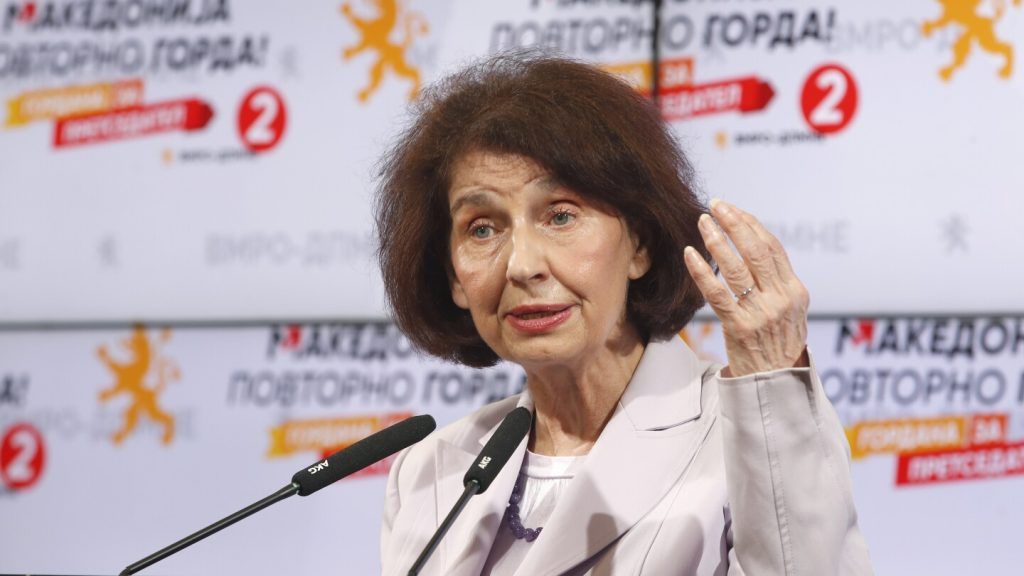The recent presidential elections in North Macedonia have seen a strong shift towards a candidate supported by the country’s center-right opposition. With nearly all the ballots counted, Gordana Siljanovska Davkova has emerged as the frontrunner with 40.08% of the votes, while the incumbent President Stevo Pendarovski received 19.93%. The runoff between Siljanovska Davkova and Pendarovski will take place on May 8, alongside parliamentary elections, and is considered a significant indicator for the upcoming parliamentary vote. Political analyst Aleksandar Krzhalovski pointed out that the governing social democrats made a mistake by focusing solely on European Union membership in Pendarovski’s campaign, neglecting other crucial issues like crime and corruption, which are major concerns for citizens.
The outcome of the presidential elections will also be influenced by the potential support from other candidates who did not make it to the second round. Foreign Minister Bujar Osmani, a government-allied candidate from the ethnic Albanian minority, received 13.36% of the votes and could play a key role in determining the final result. The voter turnout was 49.75%, indicating a moderate level of participation in the electoral process. Both Pendarovski, 61, and Siljanovska Davkova, 70, had previously contested for the presidential term in 2019, which Pendarovski won in the runoff. Expectations are high in North Macedonia that the next president will facilitate the country’s entry into the European Union, a goal supported by both main parties.
The issue of neighboring Bulgaria’s demands regarding the recognition of a Bulgarian ethnic minority in North Macedonia’s constitution has been a point of contention between the two presidential candidates. The EU member state of Bulgaria has threatened to obstruct North Macedonia’s EU membership bid if this demand is not met. The country has been a candidate for EU accession since 2005, but negotiations only began in 2022 and are expected to continue for several years. Despite the challenges, international observers have reported that the presidential elections were conducted peacefully and democratically. However, they expressed concern over the negative rhetoric and political fragmentation in the country, reflecting underlying ethnic divisions among the population.
The upcoming second round of the presidential elections and concurrent parliamentary elections on May 8 will be crucial for North Macedonia’s political landscape. The choice between Siljanovska Davkova and Pendarovski will not only determine the direction of the country’s leadership but also impact its path towards European integration. The focus on issues like crime, corruption, and EU membership will be central to the candidates’ campaigns in the lead-up to the decisive runoff. As North Macedonia navigates its complex geopolitical challenges and strives for EU accession, the role of the next president will be pivotal in shaping the country’s future trajectory. It remains to be seen how the electorate will respond to the candidates’ platforms and proposals in the final phase of the electoral process.


